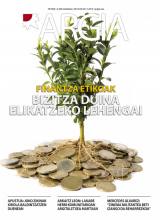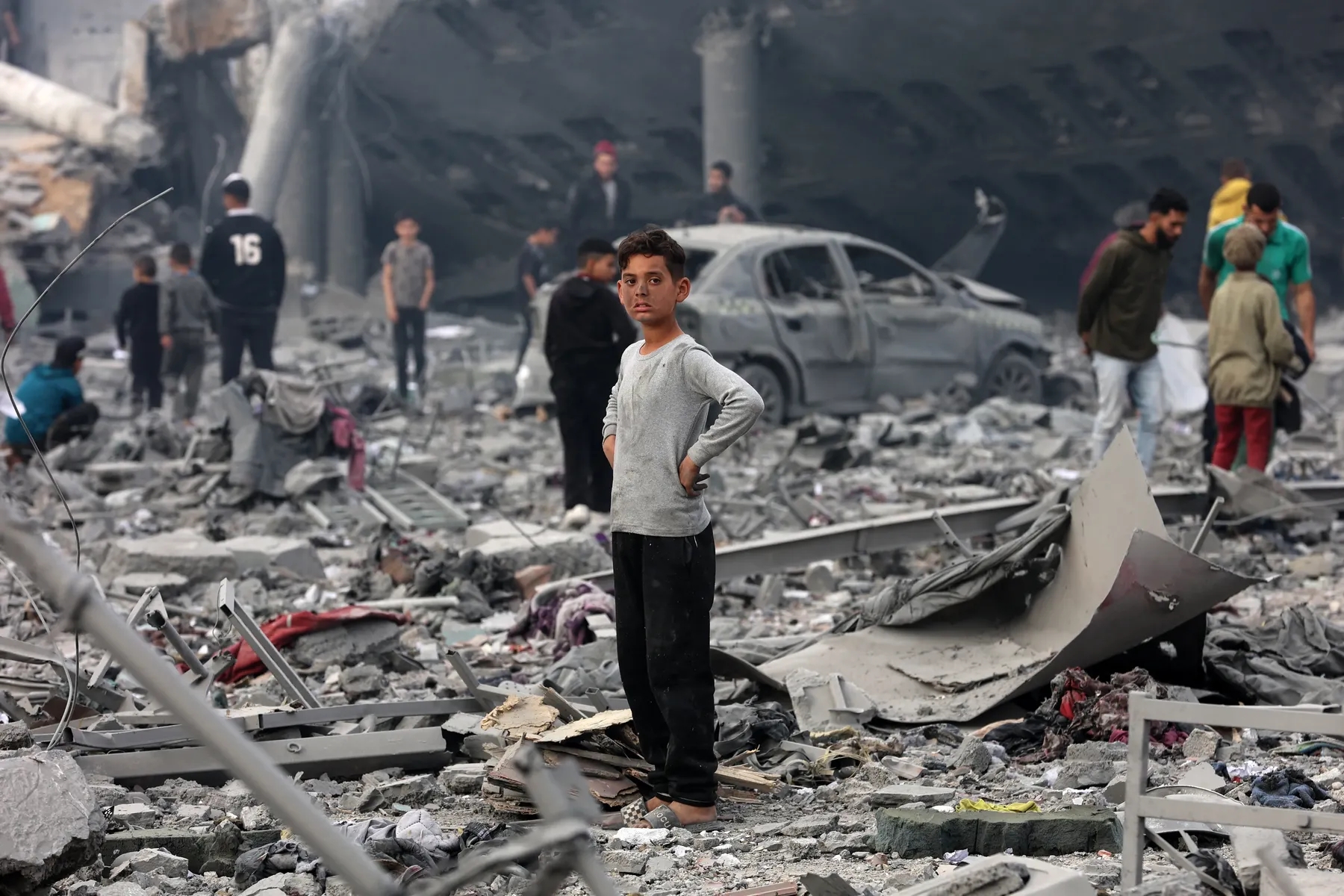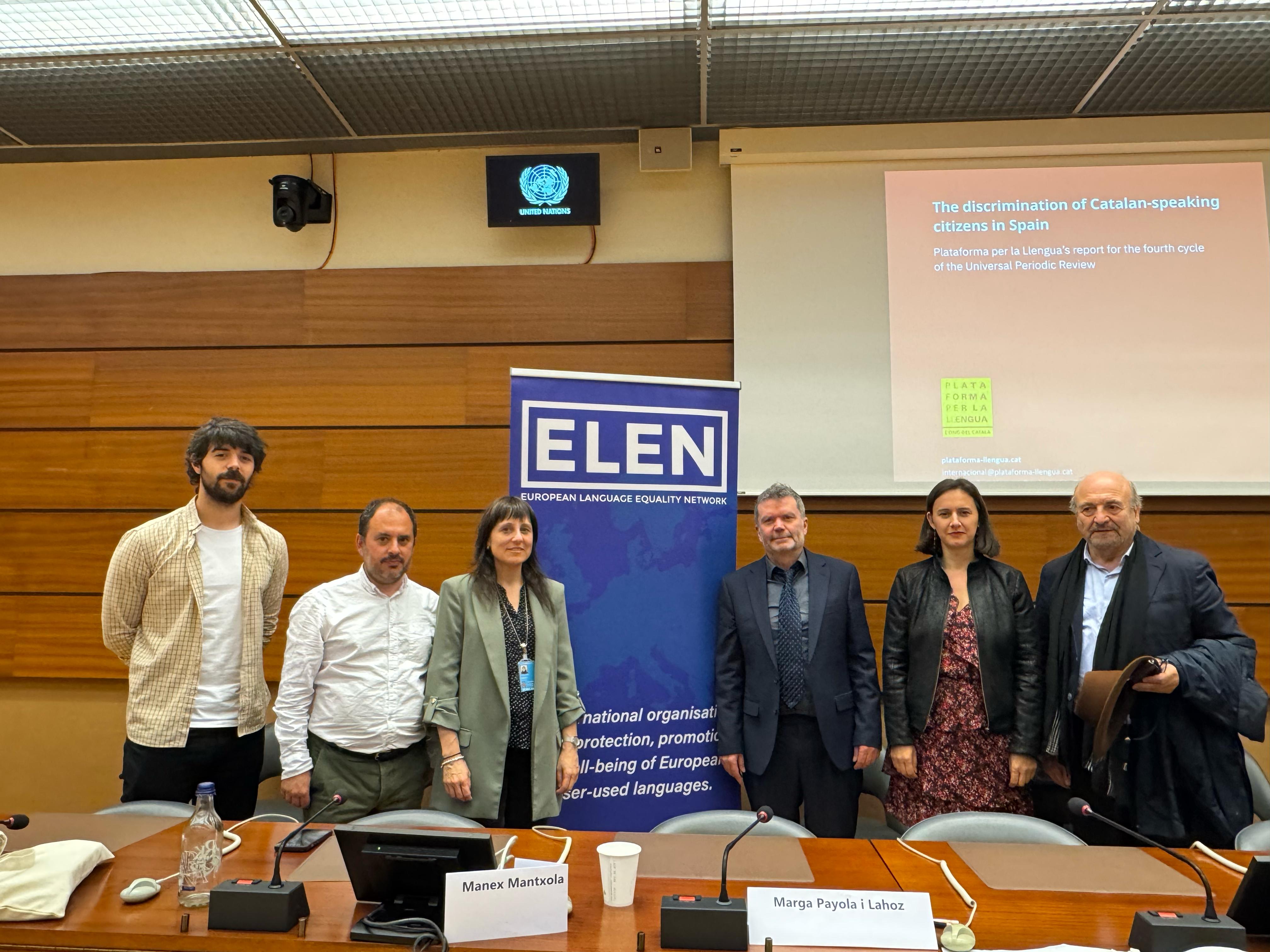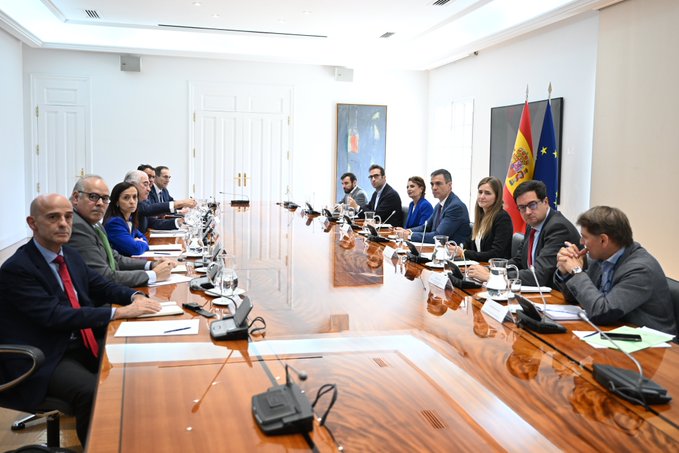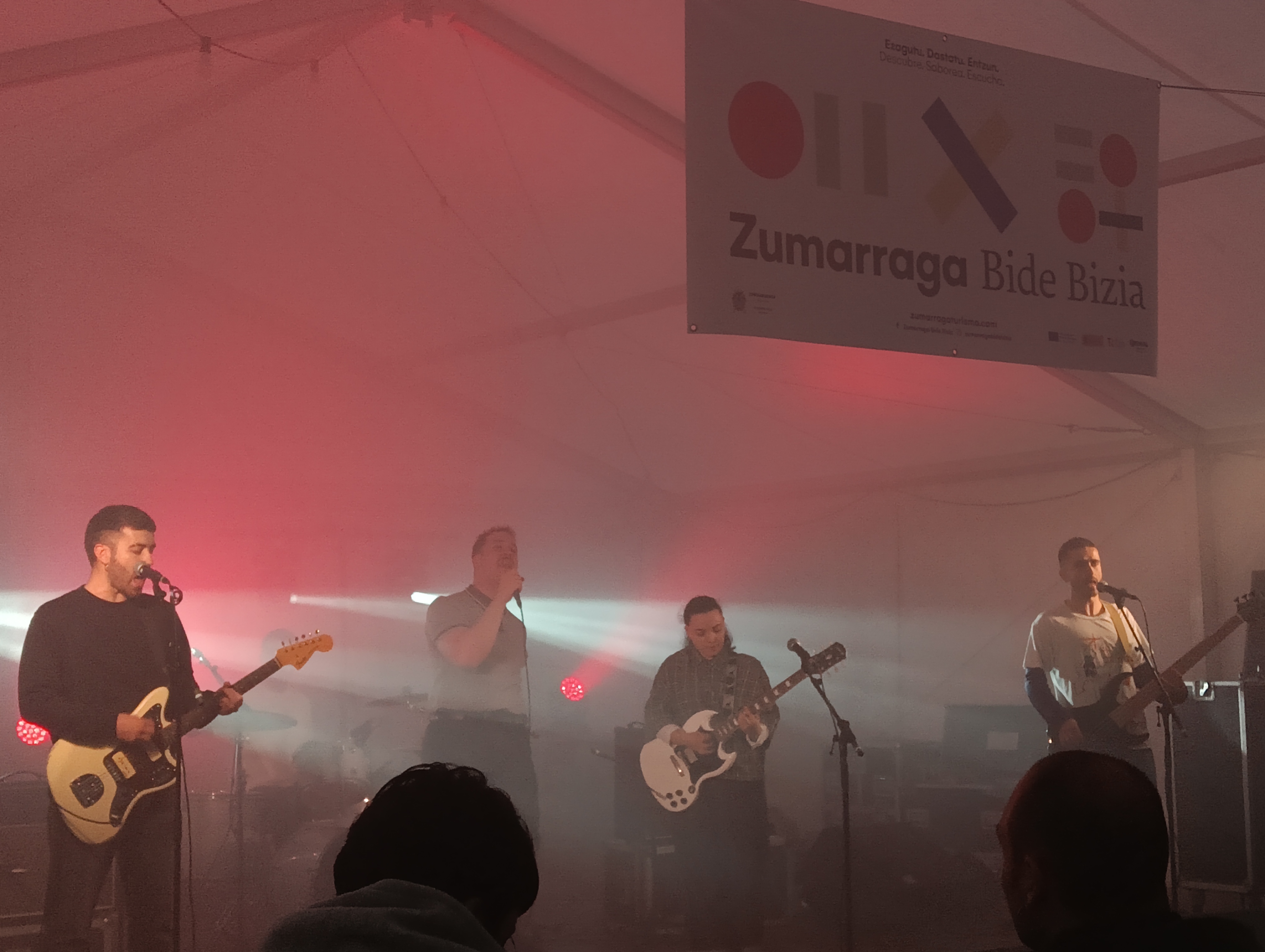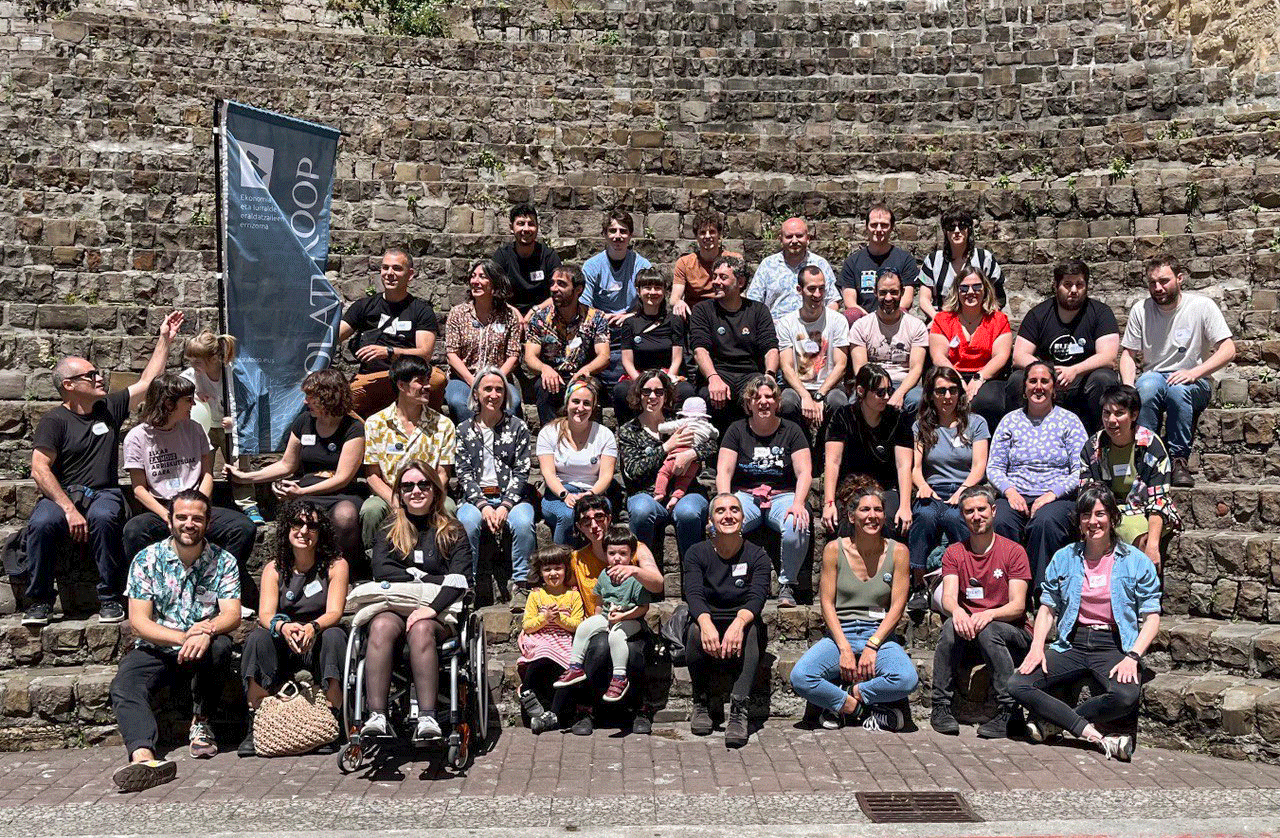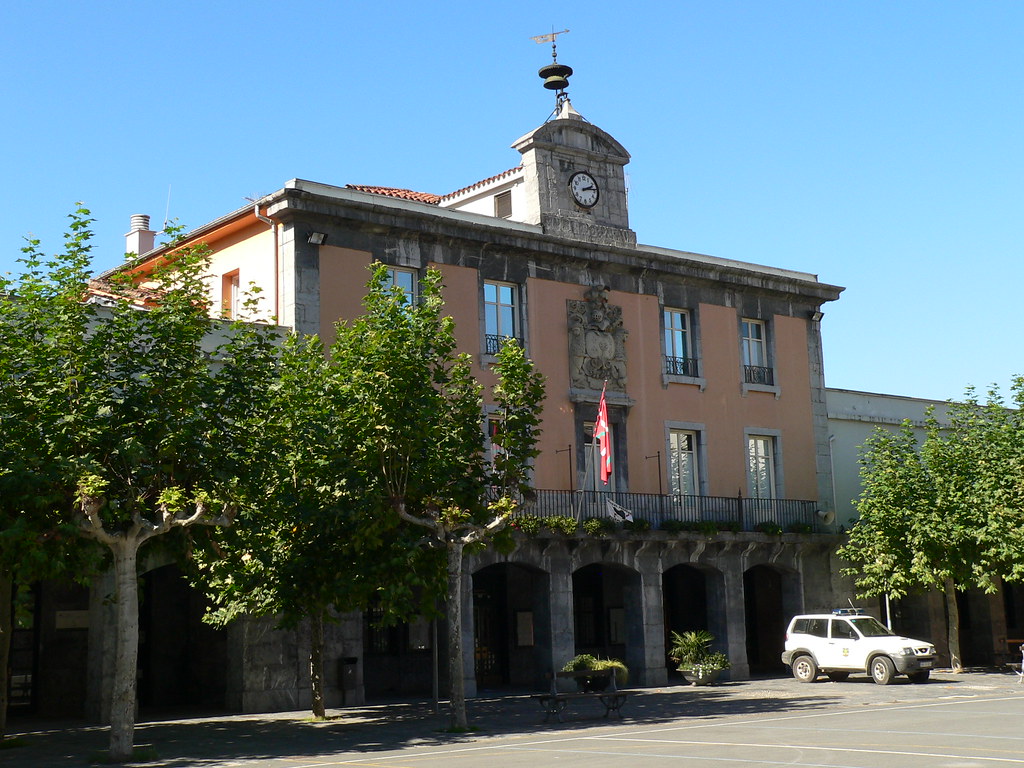“Today it’s harder to find a place where images are spoken than ever before”
- He was born in the Soriana locality of Aldealseñor. When he started making documentary film, he did not hesitate, returned to his native land and rolled the film The Sky Spins, which would give him many prizes. In his opinion, documentary film is a museum of history. Ask questions to the memory. Interrogate the environment from your own eyes. A way of making a political reflection. Because art, if there is anything, is an exception to the norm in the opinion of this filmmaker.
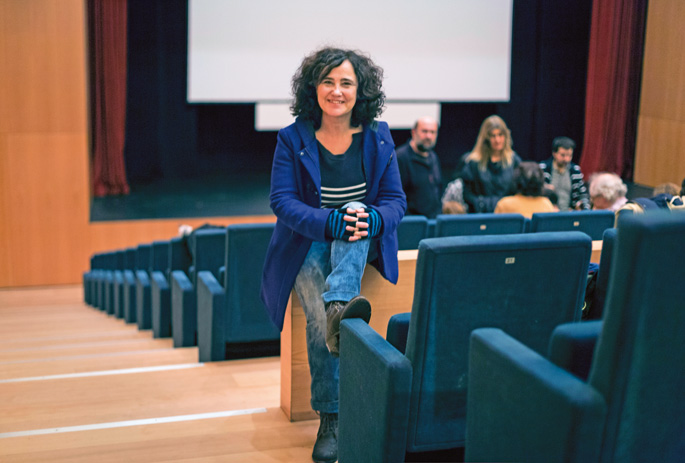
The question is inevitable for me. What do you think documentary film is?
Many believe that documentary film is nothing more than a camera in front of something. I do not agree with that point of view. You just need to know the basis of the cinema to analyze what throughout history has been the obsession of most documentalists: rather than pressing the good button of the camera, what really matters is the look of oneself. These authors have asked essential questions about this topic, how to look at it, what to look at and why. All of this requires a reflection on the form, which is why I think that the documentalists are great researchers on the form.
I mean, how you've told what you want to count.
That's right. The documentary is always a point of view on any subject. The work of the documentalist is to make possible narratives of all possible looks. There is no need for objectivity, because the documentary is precisely to construct this subjective view through images. That is why so many models of cinema have emerged: rehearsal cinema, reflection cinema, everyday cinema, experimental cinema. In this sense, the films that today leave a mark, which are not outdated, are the ones that are thought about the form.
Is it all way then?
I think when we talk about a movie, everything is form. The shape is how things are counted. The decisions about how each one takes are directly related to the research and search process; all these reflections are not free, and above all they are not predetermined. Thinking about form is thinking about content.
Many times you've talked about the need for militant film. Why is it important?
Militant film will always be necessary, but for me it is more important to have a permanent militant attitude in the trajectory of a filmmaker. It is not about making a piece with social or political content in your filmography, but about building a responsible attitude that has centrality in your activity. All of this requires the construction of its own ethical code, not to do what you do not want to do, to stop being rhetorical and not to do what you do from the stereotype. I also believe that, in addition to raising the urgent issue, we must consider what is necessary. I mean a moral attitude: when filmmakers realized the power of images, they realized that things had to be told differently.
References that reflect all of this?
Chris Marker has been the filmmaker who has most reflected on the power of the image in that sense; his ability to reveal, and also to falsify anything. And, of course, one cannot forget its handling capacity. If we want to deal with the way that those who have power use images in this way, we can't repeat the same way that they use. Images are not innocent, they're within history, and to end the rhetoric of power, you need to make a language revolution, that is, a revolution of the form.
We live by the saturation of the images. Is image still the way to tell stories?
It is true that today it is more difficult to find a place where images speak, especially due to the saturation you mention. What can be done with so much “noise”? I think the most important thing is to find unoccupied views to avoid the standardized and formatted registration formulas that conventional media use. The filmmaker, both in fiction and in “real” cinema, seeks a point of view to tell each story. When viewers are faced with this proposal, we feel that we are enriched, that what speaks to us through a different use of images tells us a different “truth”. We propose a new look at a fact that has probably been reported a thousand times.
For you, film is about making a memory exercise. Why?
My two films have a direct relationship with memory. On the other hand, I believe that in the history of cinema it has always been this way, whether it is fiction or documentary, it has always had the ability to turn it into a document. When we see a 1920's film, for example, in addition to the story that counts, we have a perfect document to explain the mood of the time, that is, we have a living memory. In addition, cinema is a museum of the history of each era, of each location, of social relations, of the language… And above all, documentary cinema.
“Even with all the shortcomings, the unions have done more for humanity than any other human organization that has ever existed. They have contributed more to dignity, honesty, education, collective well-being and human development than any other association of people.” ... [+]
Harri-jasotzearen gorakada nabaritu da azken urteetan, batez ere emakumeen artean. Gazteek harri eskoletan ikasten dute kirolean esperientzia dutenengandik. Crossfit-a, sare sozialak eta telebista faktore garrantzitsuak izan dira kirolaren piztualdian, harri eskolekin batera... [+]
Rudolf Botha hizkuntzalari hegoafrikarrak hipotesi bat bota berri du Homo erectus-i buruz: espezieak ahozko komunikazio moduren bat garatu zuen duela milioi bat urte baino gehiago. Homo sapiens-a da, dakigunez, hitz egiteko gai den espezie bakarra eta, beraz, hortik... [+]
Böblingen, Holy Roman Empire, 12 May 1525. Georg Truchsess von Waldburg overthrew the Württemberg insurgent peasants. Three days later, on 15 May, Philip of Hesse and the Duke of Saxony joined forces to crush the Thuringian rebels in Frankenhausen, killing some 5,000 peasants... [+]
Aramu + AimarZ
When: April 26.
In which: The Zumarraga Open Field.
---------------------------------------------------------
The website of the City Council says: "The tourist brand Viva Viva and the festival of the same name are designed to show the world the soul of... [+]
Zenbait urtetatik hona sarri entzuten dugun kontzeptua da zaurgarritasuna. Gaur gaurkoz, diskurtso politikoetan pertsona zaurgarriez aritzea ohikoa da. Seguru nago nik ere inoiz erabili dudala berba hori Bizilan.eus webgunean, eskubide laboralak eta prestazio sozialak azaltzeko... [+]









